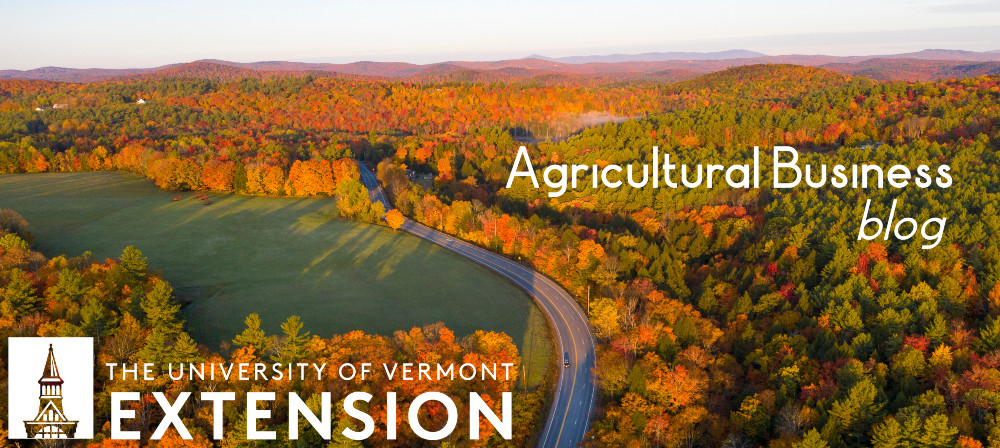The VT Agency of Agricuture, Food and Markets posts weekly Farmers Market Pricing Reports at this site: http://agriculture.vermont.gov/localfooddatatracking
These reports provide a nice way to observe the pricing trends for direct market sales. If you are already selling directly, take a look and see how your prices compare to low, high and average prices.
Covering the cost of marketing: Many small farms default to direct markets on the assumption that the higher prices received are enough to compensate for the expenses of serving these markets. The price reports provide data to crunch the numbers to compare current wholesale prices vs. direct market prices to consider your best options.
Here is a partial budget exercise using September white potato prices:
9/13/15 Report: Organic White Potatoes: $2.50 average per pound
I can currently wholesale ORG white potatoes for $0.90 per pound or $1,800 per ton equivalent. If I were to bring them to farmers market, I could potentially gross $2.50 per pound or $5,000 per ton equivalent. Let’s crunch…
- Farmers market = 200 pounds per week
- market days per ton (2,000 lbs /200) = 10 days
- market labor = 10 days x 6 hours x $12 per hours = $720
- packaging = $0.25 per pound (labels, carton/bag) = $500 per ton
- market fee (day fee): $35 x 10 days = $350 per ton
- Fuel: 30 mile round trip x 10 days (@$0.13 per mile fuel) = $39 per ton
- packaging product (retail bags): (100 lbs per hour @ $12 per hour)= $0.12 per pound or $240 per ton
- Gross Sales $5,000 less market expenses of $1,849 = partial net $3,151 per ton
- $3,151 = 63% of gross sales retained for production and profit
- Cost to Market: $0.92 per pound
- Wholesale sales = 750 pound per delivery
- delivery days per ton (2,000 / 750) = 2.7
- delivery labor = 2.7 delivery x 3 hours round trip x $12 per hour = $97 per ton
- packaging = $.70 per bag per 50 lbs = $28 per ton
- fuel: 90 mile round trip x 2.7 trips (@ $0.13 per mile fuel) = $32 per ton
- packaging product (from bins to bags): (500 pounds per hour @ $12 per hour) = $0.02 per pound or $40 per ton
- Gross Sales $1,800 less marketing expense of $197 = partial net $1,603 per ton.
- $1,603 = 89% of gross sales retained for production and profit
- Cost to market: $0.10 per pound
There is no right or wrong decision here. The big trade off is time vs. money… the direct market farm makes much more money but has also invested ~80 hours to prep and market 1 ton of spuds. The wholesale producer earns a smaller margin but has only spent ~12 hours to prep and market 1 ton.
